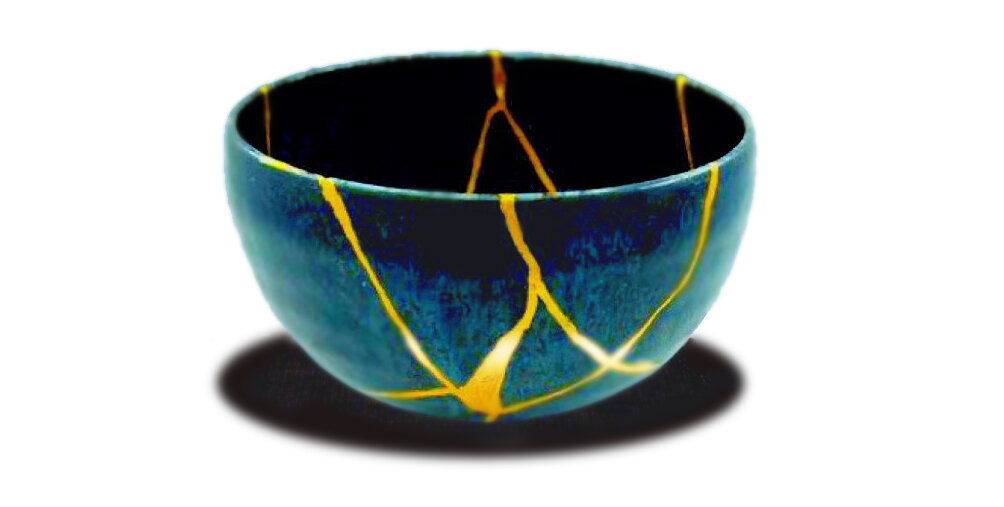Kintsugi in the Word for Word Bible Comic
This blog is contributed by guest writer Clarie Miles, an ambassador for Kintsugi Hope, a UK movement of Kintsugi Hope Wellbeing Groups, creating safe and supportive places for everyone to grow and flourish.
Kintsugi in the Word for Word Bible Comic
Kintsugi (金継ぎ, "golden joinery"), is the Japanese art of mending broken pottery with gold lacquer. The cracks shine in the repaired article, drawing attention to the preciousness of the item to its owner, and bringing a new beauty to the mended piece.
We are all scarred by our journeys through life. Situations, circumstances, and other people hurt us and can cause deep damage, changing who we are as people. Often our temptation is to paper over these cracks – we put on masks and pretend to ourselves and to others we are still the undamaged people we once aspired to be. Kintsugi art challenges this notion that only unblemished is beautiful, and only perfect is good enough.
As Christians, our very faith resides in the cracks. In our brokenness and in our scars we find our need for love, for security, for forgiveness, for God. And when we come to him for healing and restitution, he doesn’t insist we come unblemished and clean. Instead, he sent his son, Jesus, to become scarred for our sake – to identify with us, and to win our salvation with his sacrifice.
After his resurrection, when Jesus appeared to his disciples, his scars were still visible. It was in the very wounding of him that our salvation was won, and he wore his scars openly to his disciples. The marks on his side and his hands tell us a story of his love for us.
Our scars also tell a story– just as wrinkles tell of cares and joys past or a mother’s stretch marks speak of her pregnancy. The places in us where we are most broken and where we are irrevocably changed by our pain are the places which also speak of the deepest truths and the greatest loves.
Behind the scenes of the Word for Word Bible Comic is also a great story – a story of calling and gifting, and of frustration and waiting. It’s a story of trusting for provision, of struggles and prayers, of moments when it has all come right – and moments when it has all gone wrong. From the wrong size of cardboard box to delivery mix-ups, stretched budgets to inopportune vet trips**, most of the time these mistakes are behind the scenes and never seen. But a black box which should be filled with text right in the middle of Jonah?
So the husband and wife team behind the book have taken a bold move. Rather than the industry standard decision of hiding the error by pulping the entire print run with all the included waste and cost to the environment, they have chosen to make the error a feature. The text has been printed on a holographic sticker to enhance the book, drawing attention both to the error and to the text. “When God saw what they did and how they turned from their evil ways, he relented and did not bring on them the destruction he had threatened.”
It is indeed Kintsugi, it is the message of Jonah and it is also our gospel. The books’ creators did not destroy their blemished texts, God did not destroy the Ninevites, and he also does not destroy us. Instead, he sees our scars, our blemishes, our faults, and lovingly, carefully, and wondrously, accepts us home and redeems us with his precious son’s blood. In the end, all our scars will shine like gold.
Clarie Miles is an ambassador for Kintsugi Hope, a UK movement of Kintsugi Hope Wellbeing Groups, creating safe and supportive places for everyone to grow and flourish. She is also a good friend of Simon Amadeus Pillario and has been witness to many of the behind the scenes struggles mentioned.






